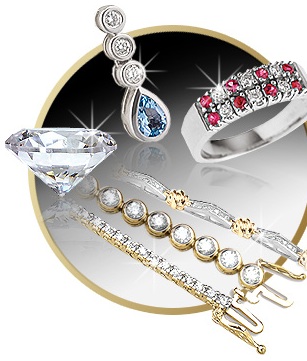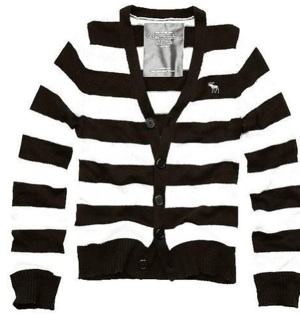Articles and News
HOLIDAY PREDICTIONS STILL DIVERGENT, BUT AFFLUENT WILL SPEND | November 02, 2011 (0 comments)

Merrick, NY—Who will reign this holiday season, Santa or the Grinch?
Apparently, it depends on whom one asks. The schizophrenia that's become common for economic news also extends to holiday spending predictions--some better than others, but all focused on the higher-income consumer.
According to a study conducted in September by Deloitte, for affluent consumers ($100,000 or higher HHI) Santa wins this holiday season. But non-affluent consumers are definitely feeling the pinch of the Grinch. The study, which was reported in Women’s Wear Daily, said consumers overall (including both affluent and non-affluent) plan to spend about 5% less than what they said they expected to spend last year. (Note: The study focused on what consumers said in September that they plan to spend, not what they actually do spend once the holiday season hits.)
But when simply asked whether they plan to spend less, more, or the same as last year—without giving a dollar figure—59% of respondents in the Deloitte study said they’d spend the same or more, and only 42% said they’d spend less (figures were rounded). This is a bit of a drop from last year, but still much better than 2008, when those figures were just about reversed.
Findings from the Survey of Affluence and Wealth in America, produced by American Express Publishing and the Harrison Group of New Canaan, CT, predict gift spending will be down among lower-level affluents (discretionary incomes between $100,000 and $250,000) but up among the top-tier affluent (discretionary income over $250,000).
Meanwhile, New Canaan, CT-based Customer Growth Partners told WWD it anticipates a robust 6.5% increase in holiday spending over 2010, more than double the modest predictions made by the National Retail Federation, the International Council of Shopping Centers, and ShopperTrak, all of which are predicting a holiday sales increase of 3% or less. CGP’s prediction would put spending at its strongest percentage basis since 2004. The firm, which offers advisory and research services to retailers, consumer goods companies, and investment firms, says its predictions have been the most accurate; last year CGP predicted a 4.5% growth in holiday spending; the actual growth was 5.8%.
“After three years of scrimping and saving, Americans are ready to spend,” CGP’s president, Craig Johnson, told WWD.


Who's going to characterize gift giving this holiday season, Santa Claus or the Grinch?
But according to Deloitte’s study, thrift is still very much on their minds. Affluent consumers (those with $100,000 annual income or more) said in that study that their planned spending is only slightly less (1.7%) for gifts this year than last year, but non-affluent consumers will spend significantly less on gifts: their gift budgets are down 26.5%.
What’s particularly interesting about the American Express/Harrison findings, though, is that the planned decline in spending among affluents has absolutely nothing to do with economic uncertainty, and everything to do with a change in attitude.
84% of respondents say they have the financial resources to weather a double-dip recession or an extended period of feeling like we’re still in a recession, but of the 14% who plan to lower their gift budgets, more than half (59%) said it’s because “we just don’t need as much stuff,” says Dr. Jim Taylor, vice chairman of the Harrison Group.
The Deloitte and American Express/Harrison findings echo earlier affluent-market research done by Unity Marketing of Stevens, PA. Pam Danziger, president of Unity Marketing and author of Putting the Luxe Back in Luxury, has been warning for some time that affluent consumer spending, especially among Boomers, is beginning a gradual shift from things to experiences, while the primary cohort in the market for “things” are the HENRY group, an acronym she coined for “high earners, not rich yet,” who incidentally—and not surprisingly—are predominantly younger Millennial and tail-end Gen-X consumers.
Taylor concurs. “Expressions of happiness are increasingly being decoupled from the desire to acquire more and more things,” he says. Despite economic turmoil, since 2008 his firm has found people are happier than ever—they’ve realigned priorities and most value more time with family. Holiday fulfillment for these consumers comes from how many family members are sitting around the Christmas tree, not how many presents are under it.

Surveys show family togetherness--like this classic Norman Rockwell painting--matters more than lots of presents for the holidays.
Deloitte says both affluent and non-affluent plan to spend less on the trappings of the holiday, including holiday home furnishings, home entertainment, and non-gift apparel for themselves. The affluent especially seem to feel that last year’s decorations will have to suffice, as those respondents to Deloitte’s study said they will cut their holiday home furnishings budget by more than 40%. The affluent plan to party more this year—a 12.4% increase in spending for socializing away from home was indicated by this cohort—but they’ll be wearing last year’s clothes to the party: spending on apparel for themselves is predicted to drop 12.2%. Non-affluents, meanwhile, are spending 9.8% less than last year on socializing away from home, but when they do they’re more likely to be sporting a new outfit than their affluent counterparts (apparel spending will drop only 7.1% for non-affluents), and come home to a festively decorated house, as this cohort will spend only 6% less than last year on holiday home furnishings.
Johnson, meanwhile, cited a number of reasons for his bullish outlook: 1) Three years of belt-tightening means many household balance sheets are in good shape. 2) The savings rate is back down from a peak of 8.2% in 2009 to 4.5%, meaning some of that money is going to be freed up for spending. 3) Year-to-date sales are up 5.8%, showing Americans have not lost their appetite for shopping, even if they were temporarily on a spending diet.
Recent economic news shows Johnson may be right again with his predictions. While consumer confidence has taken a beating, it’s not necessarily reflected in the way they shop, as he indicates and this report confirms.
And the American Express/Harrison findings don’t rule out special gifts either, including jewelry. Says Cara David, senior vice president of corporate marketing and integrated media at American Express, “Affluent consumers are still excited about purchasing special gifts for their loved ones. They are willing to spend on items or experiences that bring happiness.”
For the majority of affluent respondents to that survey, the gifts they buy need to have “lasting, enduring value.” While one in three are planning to take a special trip this holiday season as a gift for their family, 28% are looking to “splurge on a special holiday gift” for their family, a rate that rises to 40% among the very wealthiest.
They’re also planning to do a little “one for you, one for me,” while shopping. 31% of men and 49% of women say it’s highly likely they’ll slip a little something for themselves into the bag—and that something might be bangles or baubles or bright shiny beads. 36% of women surveyed by American Express/Harrison say they’d really like a jewelry gift this season, but only 27% of husbands surveyed plan to give jewelry gifts. But the good news is that the disconnect spread for jewelry (9%) is the lowest of all categories. By these statistics, 75% of the women who want jewelry should get it.

Meaningful, lasting, and by the way, she wants it!
There’s an 11% disconnect between wives who want a spa treatment for a gift and husbands who will give them, and a 13% disconnect between women who want a gift card to a specific retailer and husbands who will oblige.
But pity the poor guys—the biggest disconnect was 26%, between the 47% of wives who plan to buy their husbands some kind of apparel for a holiday gift, and the 21% of guys who actually want it.

He doesn't want this.
Separately, in more schizophrenic economic news, the Fed says the economy actually strengthened a bit in the third quarter and it anticipates inflation will remain below 2%, while the top 15 responses to an American Pulse survey asking consumers their opinion of the economy included a variety of synonyms for “bad,” including one undisclosed four-letter obscenity. But, as Johnson says, what they say and what they spend seem to be two different things so far—which is good news any way you count it.







